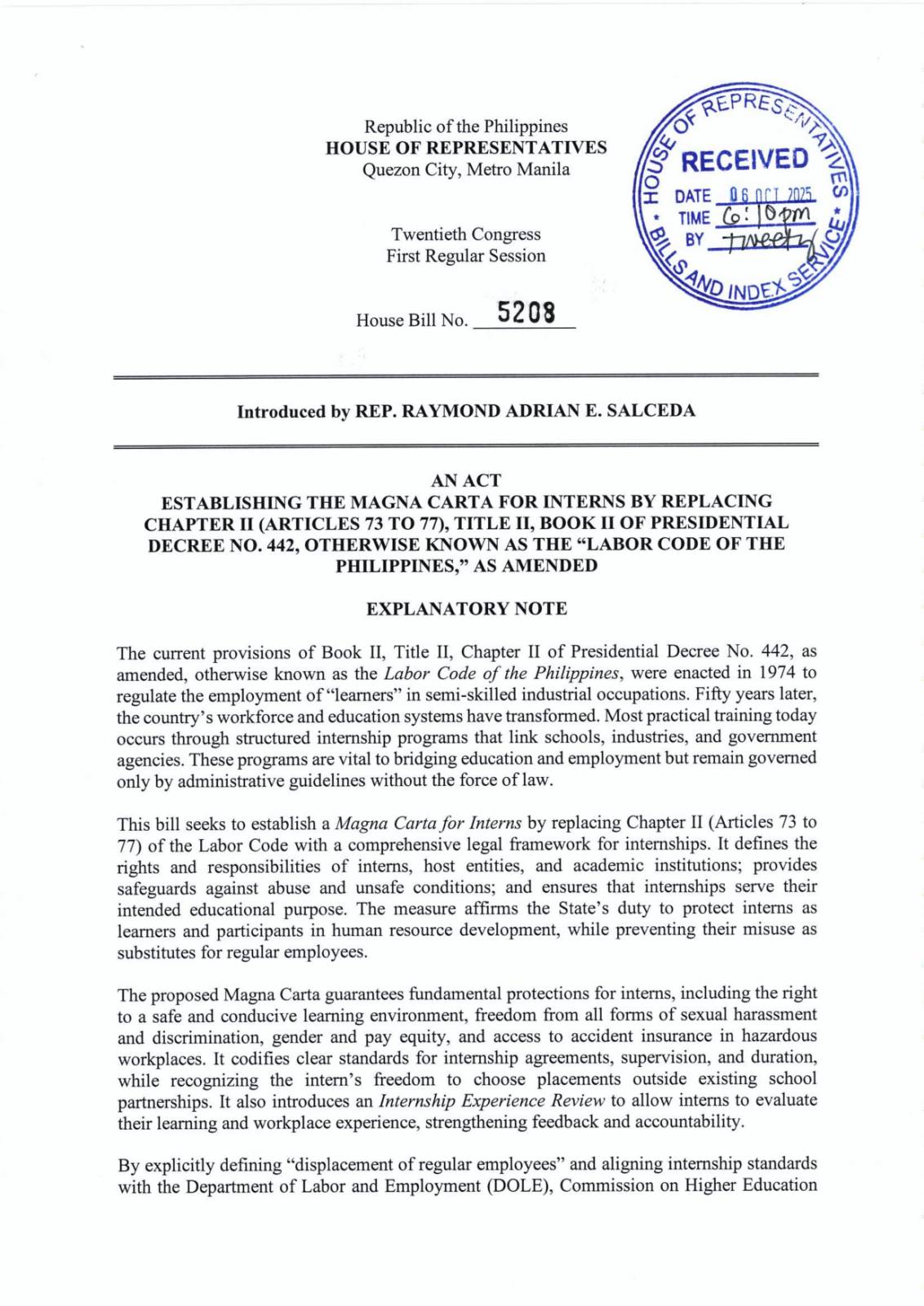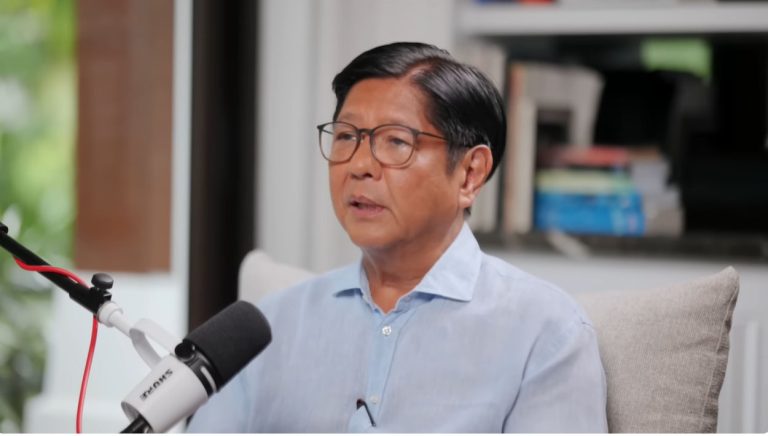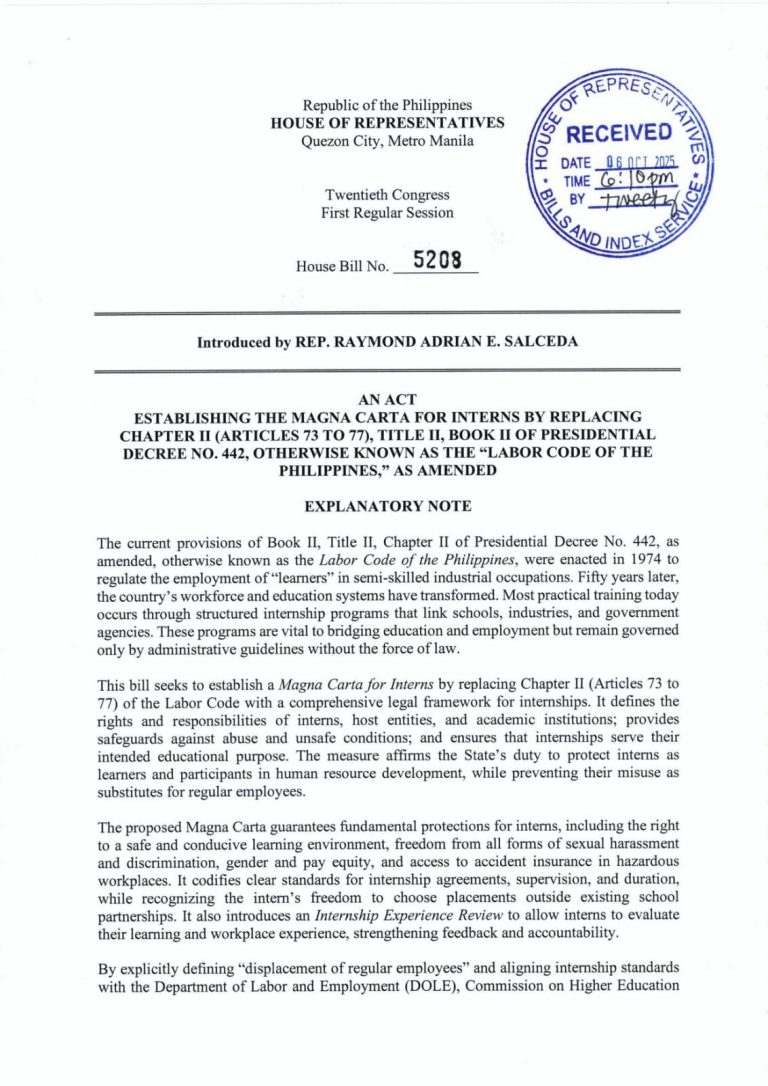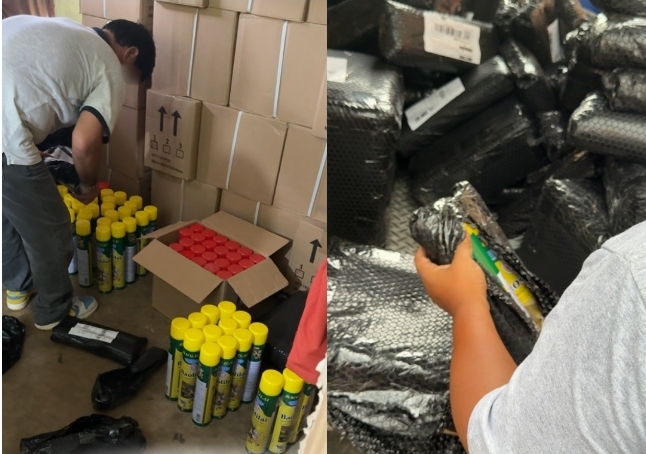
QUEZON CITY —HOUSE Special Committee on Food Security Chair Rep. Raymond Adrian E. Salceda has filed House Bill No. 5208, or the Magna Carta for Interns, a measure seeking to protect both interns and regular workers from exploitation by ensuring that internship programs are fair, safe, and genuinely educational.
The bill replaces outdated provisions of the Labor Code of the Philippines that treat interns merely as “learners” and creates a modern framework that upholds the welfare of students while maintaining fair labor practices in the workplace.
“Parte na po ng formal education ang internship. Malaki din po ang papel na ginagampanan ng internship programs. Pero gusto ko rin pong siguruhin na hindi ginagamit ang interns bilang mura o libreng labor, o di kaya pampalit sa mga regular na empleyado,” Salceda said.
“Ang internship po dapat hakbang. Hindi yan dapat ginagamit ng mga kumpanya para matakasan ang responsibilidad nilang magbayad ng tama,” he added.
“Binigyan din po ng bill natin ng karapatan ang mga estudyante na mamili ng internship, na akma sa kurso nila, hindi ‘yung mapipilitan sila sa internship programs lang na may partnership ang eskwelahan,” Salceda said.
Under the Magna Carta for Interns, all internship programs must be covered by written agreements among the intern, host entity, and academic institution. The bill provides for safe and non-discriminatory workplaces, accident insurance in hazardous assignments, and standard training hours of up to eight hours per day or forty hours per week.
It also guarantees freedom of internship, allowing students to apply for placements outside school partnerships if these meet safety and learning standards. The measure includes an Internship Experience Review, which allows interns to assess their learning experience and ensures accountability among schools and host institutions.
The bill also explicitly prohibits the replacement of regular workers with interns and promotes flexibility in program design to match academic requirements with workplace needs.
“Internships should be bridges to employment, not shortcuts to exploitation,” Salceda said. “We want to protect students, ensure fairness to workers, and promote real learning.”
The measure harmonizes internship standards across the Department of Labor and Employment (DOLE), Commission on Higher Education (CHED), Technical Education and Skills Development Authority (TESDA), and Department of Education (DepEd) to ensure consistency nationwide.







